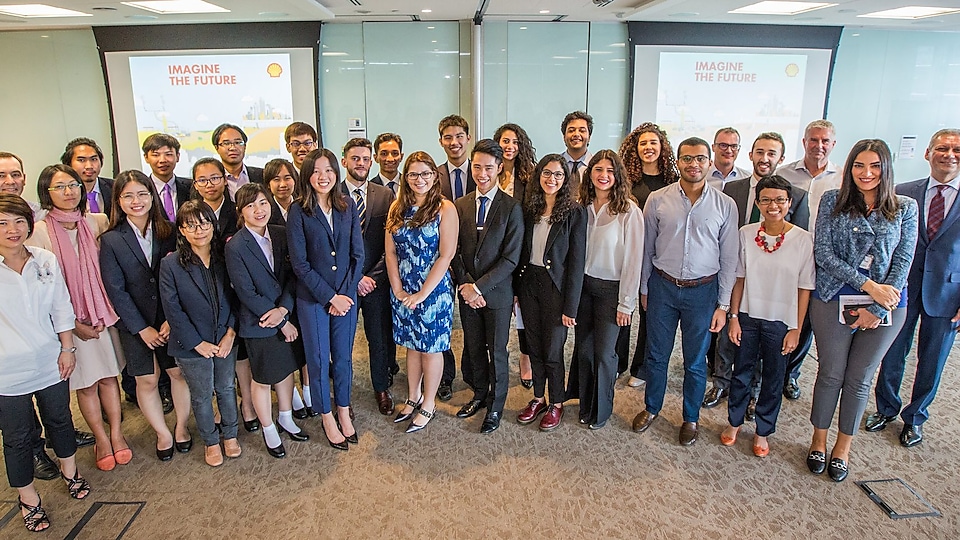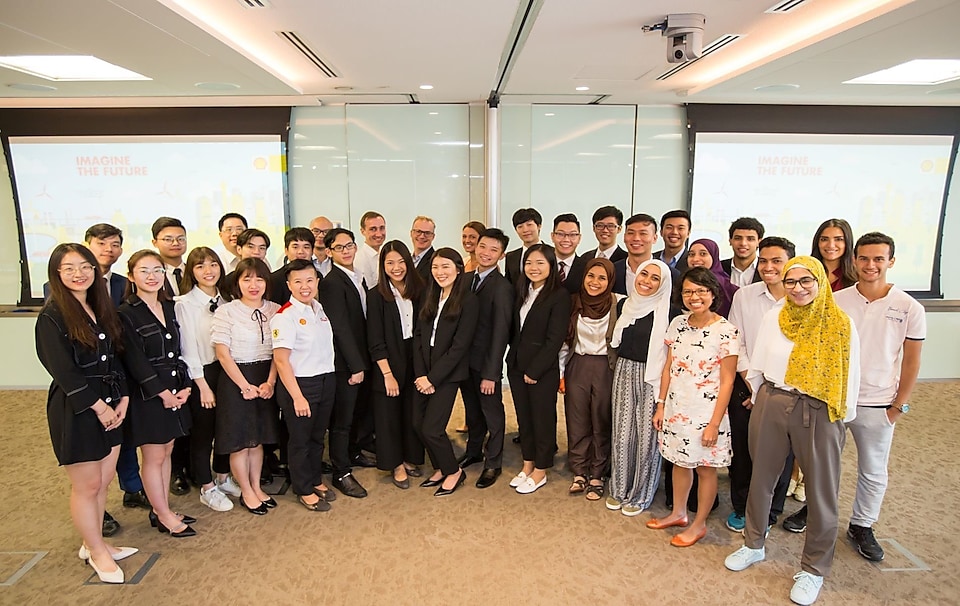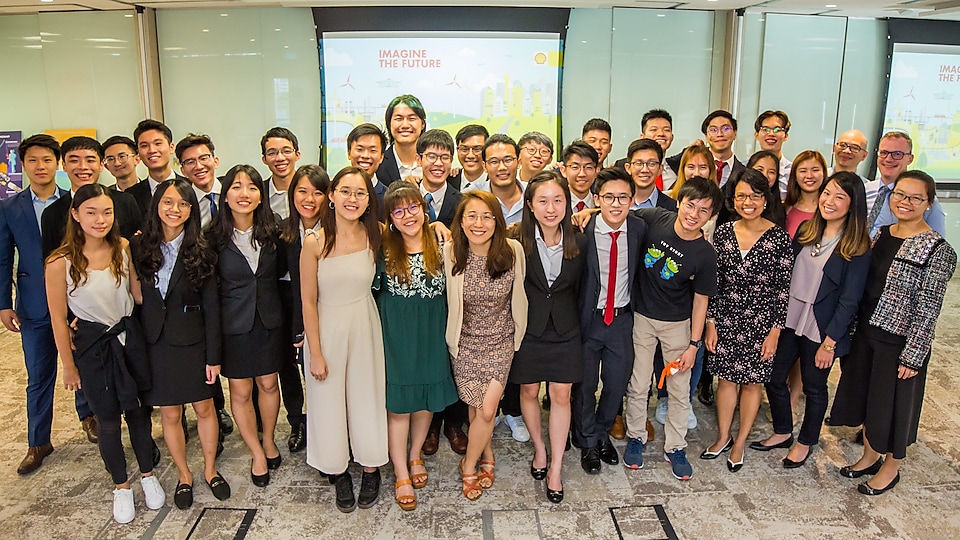
Imagine the Future Competition 2020/2021
Scenarios provide plausible alternative views of the future. Building and using scenarios can help us explore what the future might look like and the likely challenges of living in it.
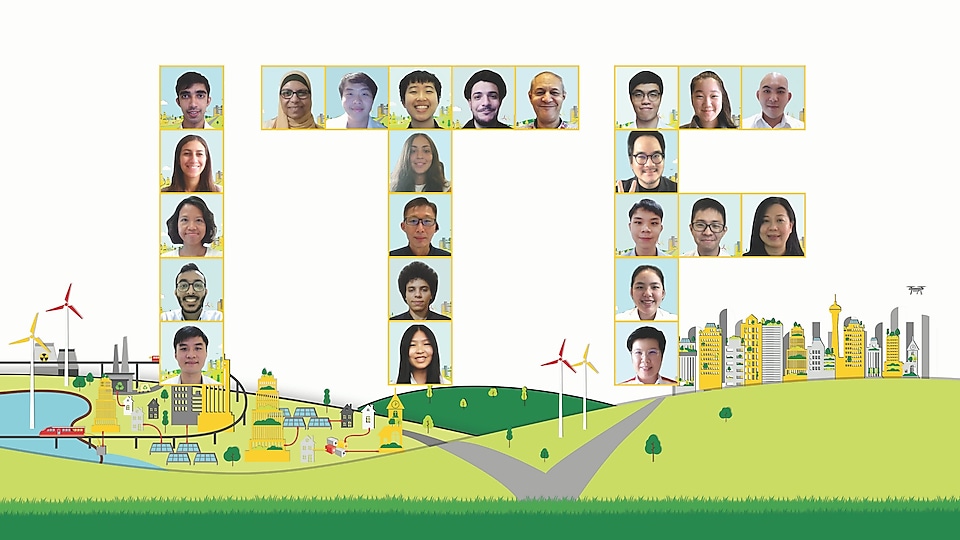
Shell Imagine the Future (ITF) Scenarios Competition 2020/2021
How today’s youth see our world in 2050
What would our world be like in 2050? Would our homes be underwater? Would our lives be ruled by artificial intelligence?
Such were the questions that participants in this competition explored as they mastered the art of scenario-building and used it to propose plausible futures.
For the fifth year running, Shell shares its rich experience in this field with 277 teams. These undergraduates were then tasked to envisage more and cleaner energy in an Asian or Middle Eastern city in 2050, and how it will change the way residents live, work and play.
Team Global Minds from Thailand were crowned champions this year with their scenarios on Hong Kong. Coming in second and third were Team Egypt and Team Singapore respectively.
Their scenarios are not a forecast and certainly not crystal-ball gazing. Meet the teams and learn more about their ideas:
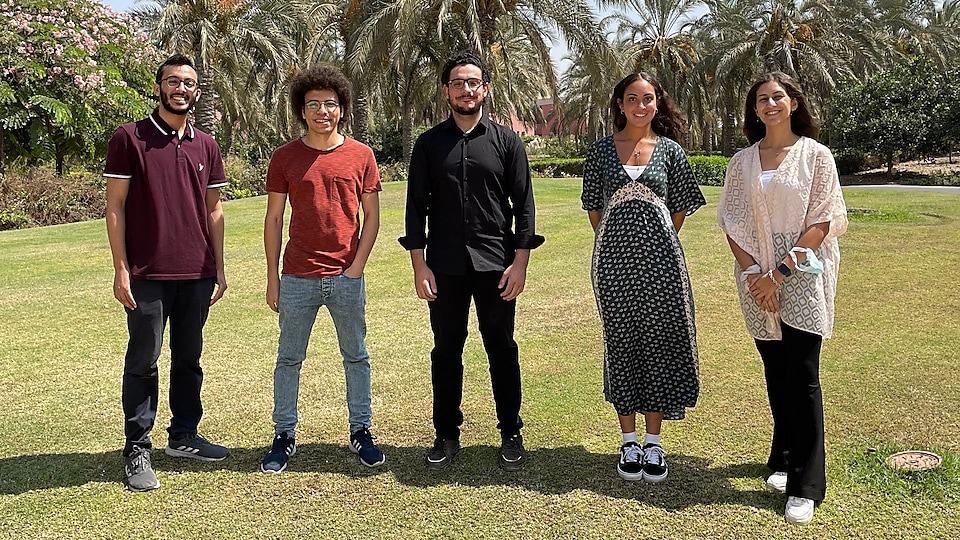
Modern Atlantis vs Green Osiris by The American University in Cairo, Egypt
Could Alexandria avert the catastrophe of rising sea levels in 2050?
In a future where climate change is inevitable, the Egyptian team looked at variables such as the dominating economic systems, climate action, social well-being and digitalisation to formulate two scenarios on what the future will look like in Alexandria in 2050.
The first scenario is Modern Atlantis where conscious capitalism helps the environment recover and enhance individuals’ quality of life. Alexandria would be a low-carbon smart city, leveraging latest digitalisation trends and various renewable energy technologies. It would also become a cosmopolitan international hub as the hyperloop undersea grid system connects Alexandria and Mediterranean countries.
In the second scenario, Green Osiris, the international community adopts Eco-Socialism 2.0. Egypt, including Alexandria, would reach zero-net emissions through implementing progressive policies and utilising nuclear energy. The society would shift from hedonistic consumerism to a leisure-rich lifestyle that is filled with solidarity, curiosity and self-expression.
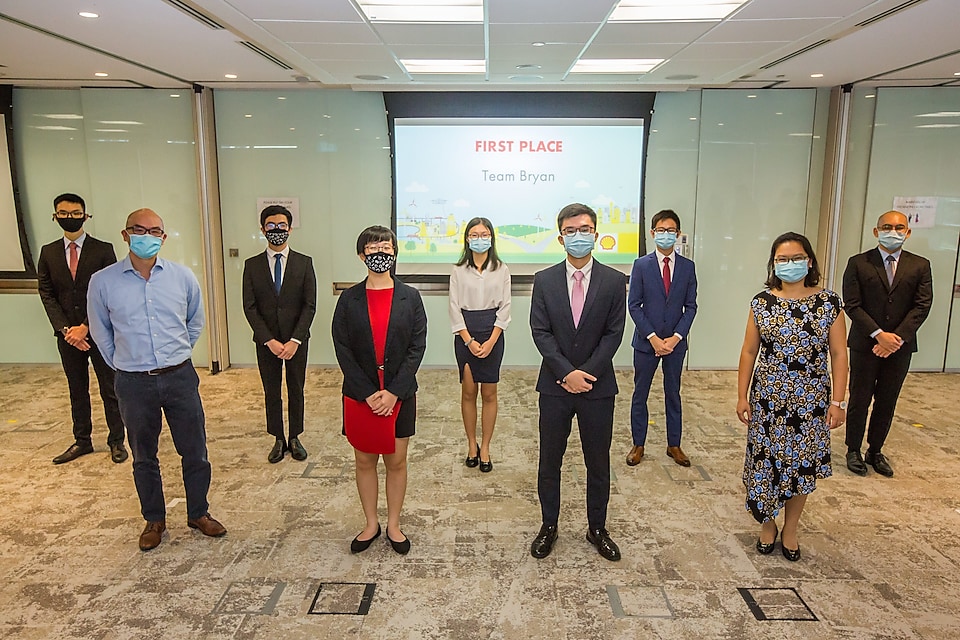
Sang Kancil vs Buto Ijo by Nanyang Technological University, Singapore
What can Jakarta do to stay viable in 2050?
The Singapore team focused on how Jakarta could adapt to its twin problems of sinking and rising sea levels. Its plight reflects the effects of climate change that the world is facing, which could lead to major cities being submerged by 2050.
The Sang Kancil (Mousedeer) scenario depicts a Jakarta that is more resistant to land subsidence through policies, planning and technological advancements. It examines various approaches that could be adopted, from constructing engineering marvels to tackling systemic social issues, to overcome the subsidence inversion.
The Buto Ijo, (Green Giant) scenario imagines a Jakarta adapting to the new normal - of rising sea levels. It explores how foreign and domestic influences could help Jakarta to continue to stay relevant in 2050 despite the subsidence issue.
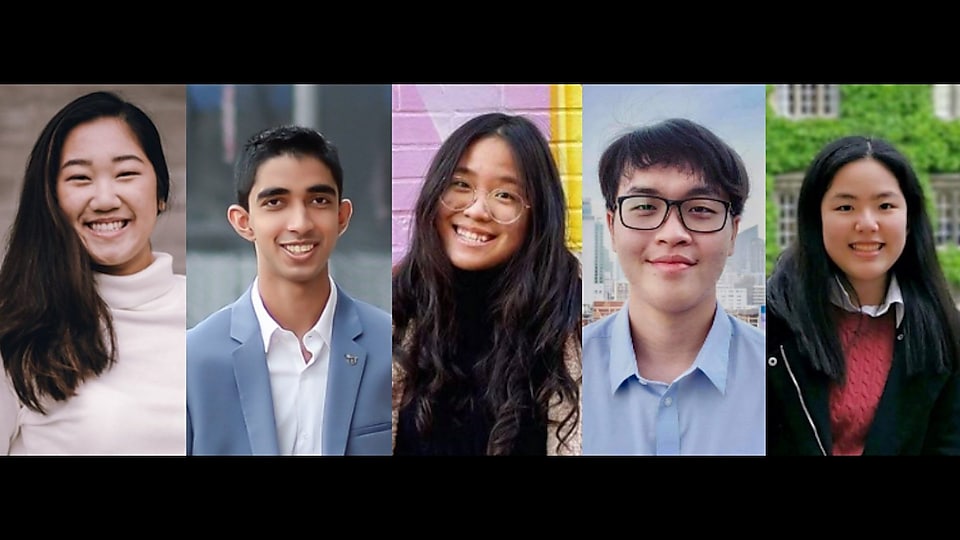
Modern Dragon vs Blind Falcon by Global Minds, Thailand
Will the “one country, two systems” arrangement expire in 2047, 50 years after Britain returned Hong Kong to China?
To address multi-dimensional challenges, the Thailand team put forth scenarios set in a 2050 Hong Kong.
In the Modern Dragon scenario, Hong Kong fits in seamlessly with China. An era of low taxation comes to an end, but residents enjoy the benefits of a strengthened welfare state. With an influx of investment in STEM to neighbouring Shenzhen, Hong Kong adds to that ecosystem by supplying skilled labour. It also becomes a quick adopter of new technologies and electric cars replace petrol-powered ones. Hong Kong will continue to maintain its distinctive identity as a port city, given its strategic proximity to Cambodia, Laos, Myanmar and Vietnam.
On the contrary, in the Blind Falcon scenario, Hong Kong remains a Chinese special administrative region for another 50 years with people gradually accepting Beijing’s rule. However, the society remains divided in beliefs. Economically, Hong Kong maintains its status as the financial centre of Asia and becomes a hub for East-meets-West innovative collaborations.
Shell Imagine the Future Scenarios Competition 2020/2021 Regional Finals | The Journey
Title: Imagine The Future Scenarios Competition Regional Journey
Duration: 45 seconds
Description:
Montage video on the ITF students, and their ideas on plausible scenarios in 2050.
[Video Footage]
Student looking at laptop
[Dialogue: Male]
What are the problems in the world right now and how do we see those problems being fixed 30 years down the line?
[Video Footage]
Male interview
[Text Display]
Imagine The Future Scenarios Competition 2020/2021
[Video Footage]
A female student talking over a Zoom call
[Dialogue: Male]
The Imagine The Future Scenarios Competition is to do with what we envision for the future.
[Video Footage]
A judge talking over a Zoom call
[Video Footage]
Two students listening in over a Zoom call
[Video Footage]
Male interview
[Video Footage]
A group of students acting out a skit.
[Dialogue: Female]
It taught us to have a more future mindset.
[Video Footage]
Female interview
[Dialogue: Female]
It makes me feel like I have an impact.
[Video Footage]
Stock Footage of a sunrise over a river
[Dialogue: Male]
Scenario planning is our powerful tool to win this battle against the unknowns of the future.
[Video Footage]
Students bobbing their heads as they recite something on a piece of paper.
[Video Footage]
A trainer giving a thumbs up
[Video Footage]
Male interview
[Video Footage]
Students presenting their ideas over a series of models on a table
[Dialogue: Female]
Everything that we do now is important and will affect whatever happens in the years to come.
[Video Footage]
A judge gestures as he speaks
[Video Footage]
A student responds
[Video Footage]
A student talking over a microphone
[Video Footage]
Female Interview
[Video Footage]
Aerial Timelapse of a city
[Dialogue: Female]
We're evolving. We're coming up with good solutions in order to be resilient towards climate change.
[Video Footage]
Female Interview
[Video Footage]
A student talking on a Zoom call with a virtual background
[Video Footage]
A judge talking over a Zoom call
[Video Footage]
A judge talking over a Zoom call while gesturing
[Video Footage]
A student nodding while listening
[Dialogue: Male]
Whatever we do now in the present affects whatever will happen 30 years.
[Video Footage]
A student talking over a Zoom call
[Video Footage]
A judge talking over a Zoom call
[Video Footage]
Male Interview
[Video Footage]
A student listening while holding onto a microphone
[Dialogue: Female]
Everything we do add up to either the good or the bad of the future. And it's up to us to decide which that we want to be on.
[Text Display]
A group of students standing in line
[Video Footage]
Female interview
[Video Footage]
A student presenting
[Video Footage]
Female interview
[Text Display]
How do you imagine the future
[Video Footage]
Timelapse of a train moving
[Text Display]
Join us now
[Shell Hecten]
[Shell Jingle]
[Text Display]
Shell Imagine the Future Scenarios Competition 2020/2021 Singapore Finals | The Journey
Title: The Imagine The Future Scenarios Competition Singapore Journey
Duration: 1 minute 32 seconds
Description:
Montage video on the ITF students, and their ideas on plausible scenarios in 2050.
[Video Footage]
Miniature man and building figurines and a Male student talking.
[Dialogue: Male]
This competition really got me thinking about the future that I want to create for myself.
[Video Footage]
Male interview.
[Video Footage]
Students standing in a line with masks.
[Dialogue: Female]
We are very divided currently, when we can actually evolve more to be like, a unified human race.
[Video Footage]
Two Male students looking down.
[Video Footage]
A Male student helping a Female student with a camera.
[Video Footage]
Female interview.
[Video Footage]
Male student presenting
[Text Display]
Imagine The Future
Scenarios Competition
The Singapore Journey
[Dialogue: Female]
We had to re-imagine what life would be like in cities in 2050.
[Video Footage]
Female interview.
[Video Footage]
Male student adjusting exhibition
[Dialogue: Male]
Scenario planning helps us to find patterns in chaos and make sense of what’s going on in the world.
[Video Footage]
Chinese spoons, plates and bamboo steamer on a table.
[Video Footage]
Brochures and souvenirs on a table.
[Video Footage]
Male interview
[Video Footage]
Female student using Virtual Reality device.
[Dialogue: Male]
I think it really test our imagination while getting us to stay grounded in creating plausible yet innovative scenarios.
[Video Footage]
Male student explaining to Male Judge about Virtual Reality device.
[Video Footage]
Female Judge looking through book.
[Video Footage]
Male interview
[Video Footage]
Female student talking to workshop instructor
[Dialogue: Female]
Having such a competition allowing young individuals to gather together and brainstorm on what are the possibilities. It’s really important because that will drive the direction for the future.
[Video Footage]
3 students balancing on one leg.
[Video Footage]
3 students holding a paper and performing.
[Video Footage]
Female interview
[Video Footage]
Judges taking their seats.
[Video Footage]
Students walking to prepare to present.
[Dialogue: Male]
Flash floods become increasingly more frequent.
[Video Footage]
Male student presenting
[Video Footage]
Female judge listening
[Dialogue: Male]
Gojek has slowly integrated technology into each of our everyday lives.
[Video Footage]
Male student presenting
[Video Footage]
Female judge talking
[Dialogue: Female]
The government saw this as a chance to re-develop the land in a way that’s never been tried.
[Video Footage]
Male students presenting
[Video Footage]
Female student presenting
[Dialogue: Male]
We're even projected to reduce crime rates by 89%.
[Video Footage]
Male student presenting
[Video Footage]
Male Judge listening
[Video Footage]
Male Judge talking
[Dialogue: Male]
What we have to think about is how to use energy and progress our society beyond our imagination.
[Video Footage]
Students standing in a line with masks.
[Video Footage]
Male interview
[Video Footage]
Workshop instructor talking to students
[Dialogue: Male]
This competition has made me come to grip with the fact that the lives that we live in are very much dictated by uncertainties that can shape the world that we live in fundamentally.
[Video Footage]
Workshop instructor talking to students
[Video Footage]
Two male students discussing
[Video Footage]
Male student showing a photo on a phone
[Video Footage]
Male interview
[Video Footage]
Male student presenting alongside other students
[Dialogue: Female]
There is definitely a big impact that people from the current times will be living on the future generations, which is why it’s important for all of us to think of how we can make the impacts good and to minimize any negative consequences as a result of our actions.
[Video Footage]
Female Judge talking
[Video Footage]
Male student talking alongside other students
[Video Footage]
Male student letting a Male Judge try the Virtual Reality device
[Video Footage]
Male student using a computer
[Video Footage]
Male student explaining to Judges about his team’s exhibit
[Video Footage]
Female interview
[Video Footage]
Female interview
[Video Footage]
Group of students discussing about their exhibit
[Shell Hecten]
[Shell Jingle]
Shell Imagine the Future Scenarios Competition 2020/2021 Singapore Finals | How do you imagine the future?
Title: The Imagine The Future Journey
Duration: 49 seconds
Description:
Montage video on the ITF students, and their vision of a cleaner and more sustainable world in 2050.
[Text Display]
How Do You Imagine The Future
[Video Footage]
Female student interview
[Dialogue: Female]
2050 will be a year where people will be more environmentally-friendly.
[Video Footage]
Female student talking to computer.
[Dialogue: Male]
Renewable energy becomes cheaper and there’s less reliance on fossil fuels.
[Video Footage]
Male student interview.
[Video Footage]
Male student listening to computer with his chin resting on his hand.
[Dialogue: Male]
I imagine a world that is more volatile and more resilient.
[Video Footage]
Male student interview.
[Video Footage]
Male student interview.
[Dialogue: Male]
People have access to sustainable food.
[Video Footage]
Male student interview.
[Dialogue: Male]
And all civilizations will be underground.
[Video Footage]
Male student gesturing to computer.
[Dialogue: Female]
There may be more transnational collaboration.
[Video Footage]
Female student interview.
[Dialogue: Female]
And language and location are no longer obstacles working together.
[Video Footage]
Female student interview.
[Video Footage]
A male instructor talking and gesturing to computer.
[Video Footage]
Two male students listening to computer.
[Dialogue: Male]
It will be a technologically connected one where governments and societies come forward to solve inescapable problems.
[Video Footage]
Male student interview.
[Video Footage]
Male student using computer.
[Video Footage]
Group of students discussing.
[Dialogue: Female]
I imagine a future that’s vibrant, resilient and sustainable. And is filled with innovations and possibilities.
[Video Footage]
Female student interview
[Dialogue: 2 Male 2 Female]
How do you imagine the future?
[Video Footage]
Group of students interview.
[Text Display]
Imagine The Future Scenarios Competition
[Shell Hecten]
[Shell Jingle]
Imagine the Future scenarios
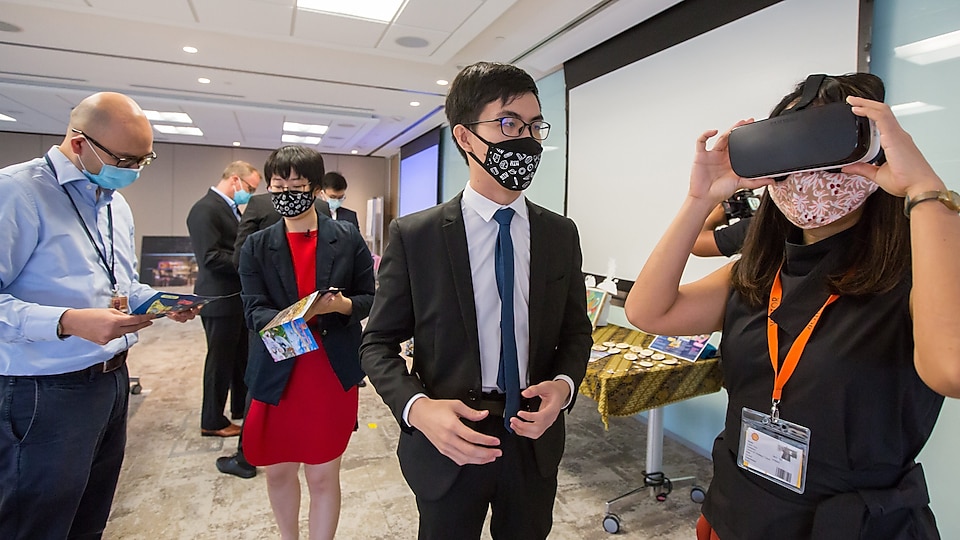
How would we live, work and play in 2050?
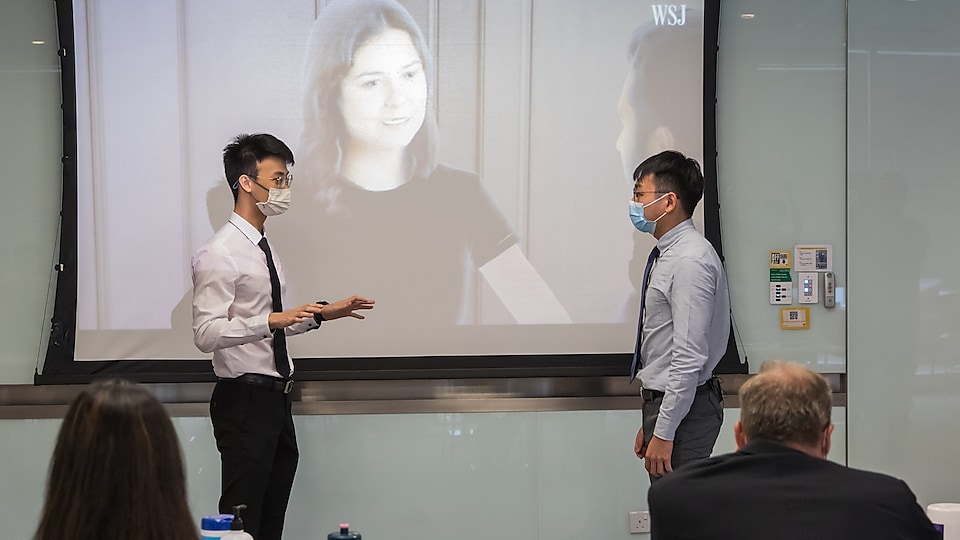
Building and using scenarios can help us explore what the future might look like and the likely challenges of living in it.

The panel of judges discussing the scenarios presented by the Singapore teams.
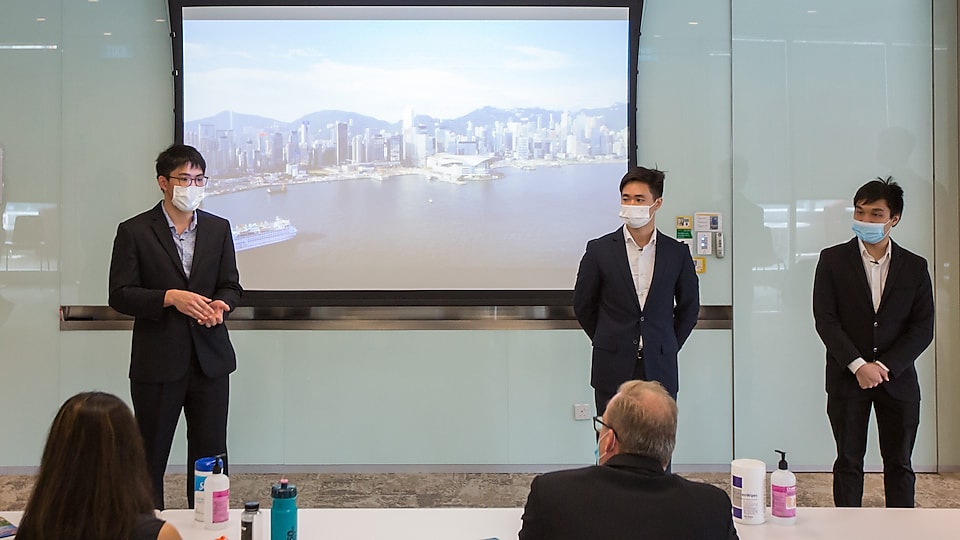
Scenarios provide plausible alternative views of the future.
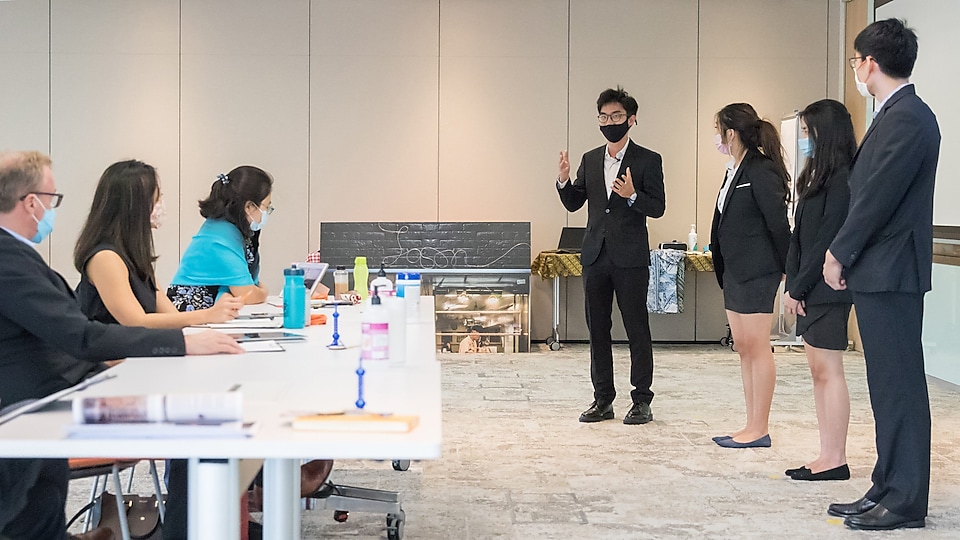
Discover what possibilities lie in the future of energy through the Imagine the Future Scenarios Competition.
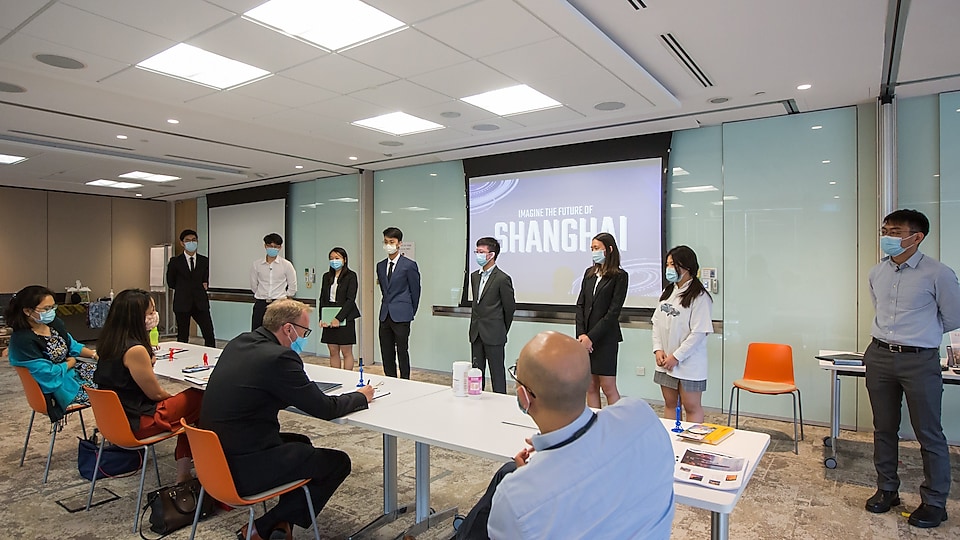
Together, we can Imagine the Future.
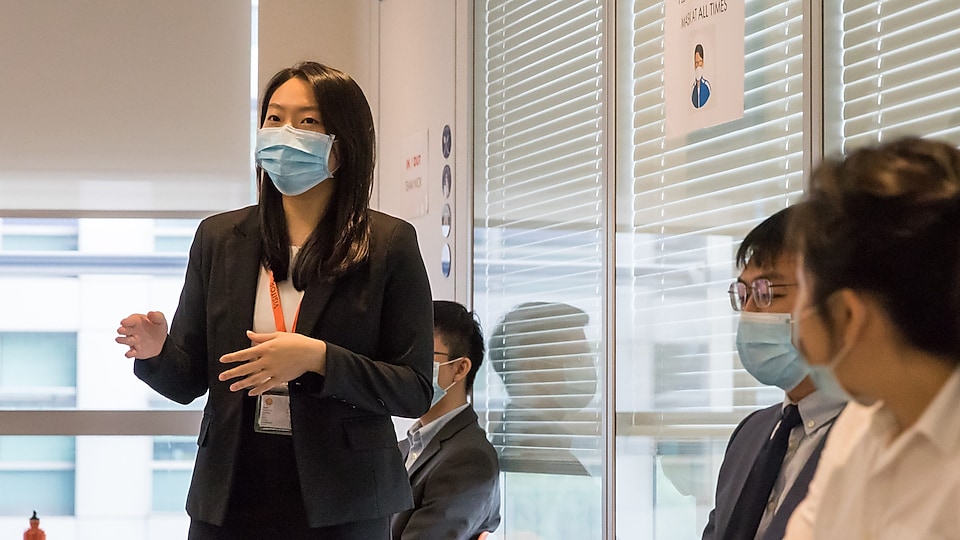
A team member sharing her reflections on the competition journey.
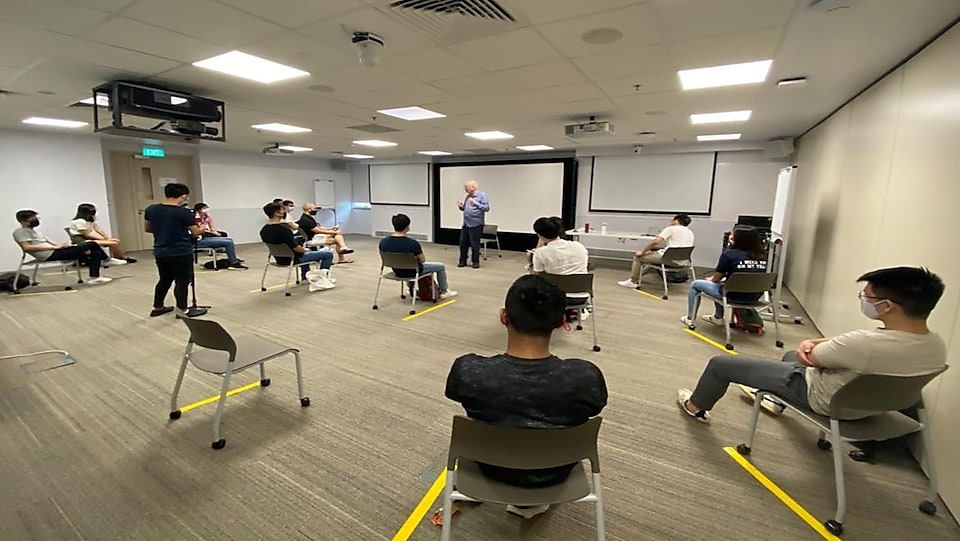
Teams attending a storytelling workshop where methods or techniques were shared to help present their scenarios more creatively at the National Finals.
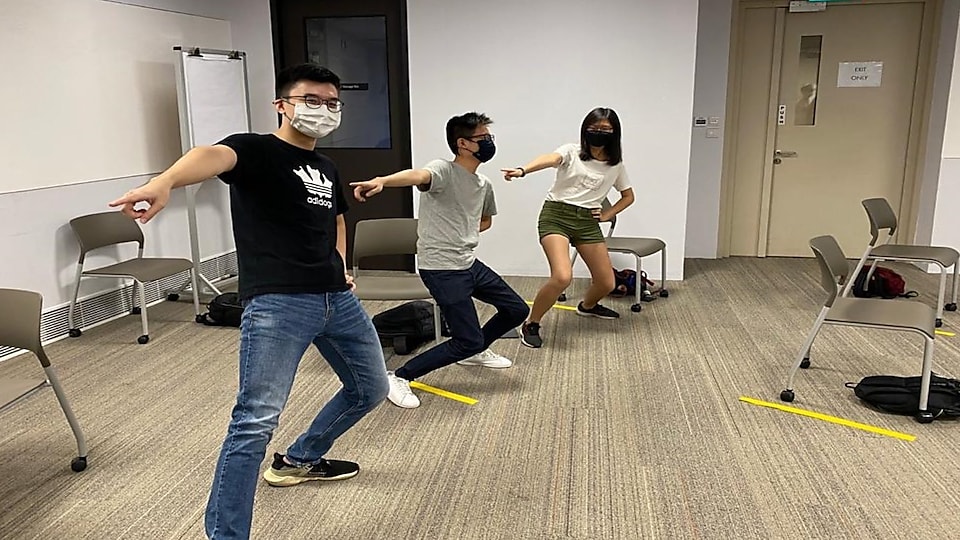
A team putting their creative thinking skills into action.
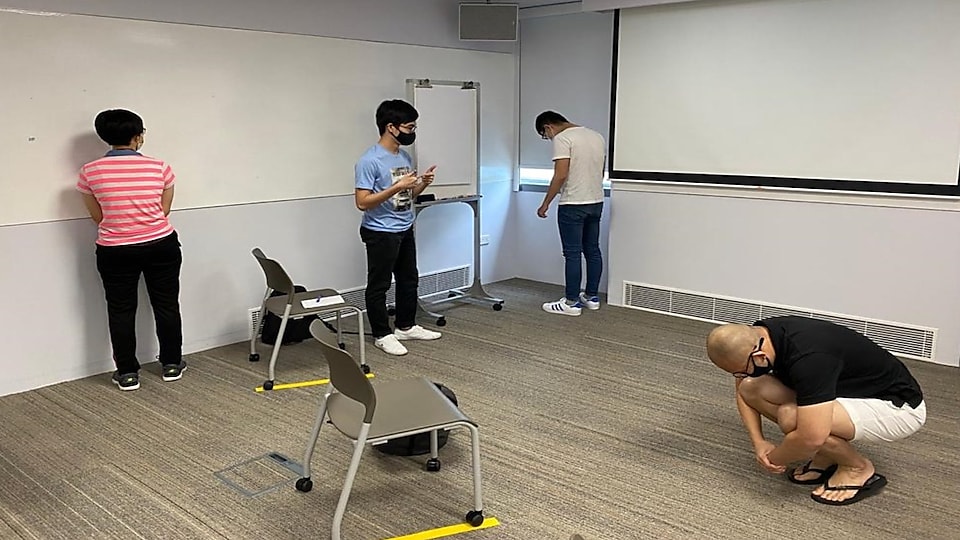
A team acting out an alternative scenario during the storytelling workshop.
Previous editions
Imagine the Future Competition 2017/2018
Participants from the Imagine the Future Scenarios Competition 2017/2018 share their experiences.
Imagine the Future Competition 2018/2019
Participants from Imagine the Future Scenarios Competition 2018/2019 share their experiences.
Imagine the Future Competition 2019/2020
Participants from Imagine the Future Scenarios Competition 2019/2020 share their experiences.
